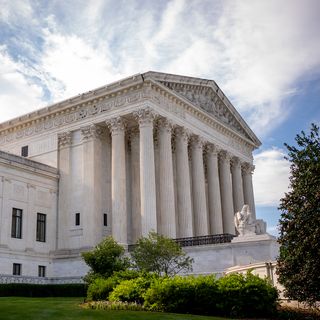Bids for Pope Leo XIV's childhood home start at $250,000, but there's a catch

Photo by Jim Vondruska/Getty Images
- The owners of Pope Leo XIV's childhood home in Illinois are trying to sell it via private auction.
- The home was listed for $199,900 before the pope's appointment. Now, bids start at $250,000.
- The auction winner may not get to enjoy it because the local government wants to acquire the home.
People bidding to buy Pope Leo XIV's modest childhood home in Illinois could face some stiff competition — from the local government.
The innocuous three-bedroom, three-bathroom home in the Village of Dolton was thrust into the spotlight when Pope Leo XIV became the leader of the Catholic Church.
The current homeowner purchased the property in May 2024 for $66,000, listed it for $219,000 in January, and dropped the price to $199,900 in February.
After the pope's appointment on May 8, the owner, inundated with offers and new options, delisted the home until last week when it was put up for auction through Paramount Realty USA. The reserve price is $250,000, and potential buyers have until June 18 to bid.
"It's like a collectible car they only made one of," Steve Budzik, the homeowner's real estate agent, told BI earlier this month.
Potential buyers, however, will be going up against the Village of Dolton, which has said through its attorney that it plans to acquire the home either through direct purchase or eminent domain laws. Eminent domain laws allow governments to make private property available for public use.
"If a direct purchase from the seller cannot be negotiated, the Village will cause Eminent Domain proceedings to be filed in Court and take the property through the legal process," Burton S. Odelson wrote in an email to BI. "The Village hopes a direct purchase is completed without court action."
Odelson, who's been in contact with the listing broker, said the Village of Dolton is working with the Chicago Archdiocese to determine the best use of the space.
Although relying on local eminent domain laws is an option, Odelson said it's a last resort. That process involves litigation, which means attorney fees, court costs, appraisal costs, and time.
Under eminent domain laws, the Village of Dolton would have to compensate the owners for the home. Negotiations between the Village of Dolton and the current owner are ongoing.
The hype around Pope Leo XIV's childhood home spurred immediate fanfare, prompting news trucks and curious locals to visit. One woman even told a local news outlet that she made the four-hour drive from Louisville, Kentucky, just to visit the impromptu holy site.
Representatives for Paramount Realty USA and the homeowner did not respond to a request for comment from Business Insider.

